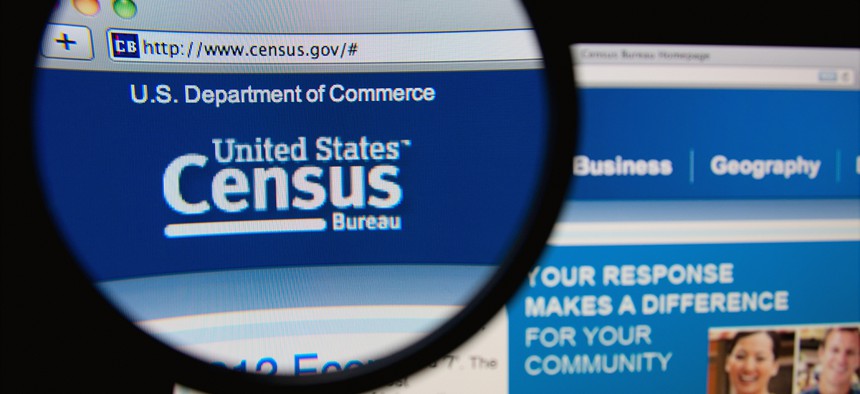Lawmakers Press Census to Appoint Permanent CIO Amid Prep for 2020 Count

Gil C/Shutterstock.com
The agency’s’ IT shop has been officially leaderless since last July.
Updated: This story has been updated with comment from the Census Bureau.
House lawmakers are calling on the Census Bureau to appoint a permanent chief information officer as the agency prepares to enter crunch time in preparing and testing for the upcoming 2020 count.
Agency officials have big plans for using technology to help cut costs on the once-every-10-years census, including allowing some respondents to fill out forms online and equipping fieldworkers with mobile devices for door-to-door visits.
But the agency’s’ IT shop has been officially leaderless since last July when former CIO Brian McGrath -- who led the agency through the last census in 2010 -- left the agency after six years for a post in the Justice Department.
“Simply put, the American public deserves to have a permanent, accountable CIO at the helm,” wrote the top Republicans and Democrats on the House Oversight and Government Reform Committee in a May 10 letter to Census Bureau Director John Thompson. A deputy, Harry Lee, has been filling in as CIO since last summer.
Nextgov requested comment from Census about plans for hiring a new CIO.
» Get the best federal technology news and ideas delivered right to your inbox. Sign up here.
The letter also lays out lawmakers’ concerns with the “ever-tightening timeline” the agency faces.
Along with committee Chairman Jason Chaffetz, R-Utah, and Elijah Cummings, D-Md., the letter is signed by the chairman and ranking members of the subcommittees on government operations and information technology.
The bureau hopes to avoid a repeat of the last census, where a similar plan to use mobile devices foundered after falling too far behind to be adequately tested.
The lawmakers said they’re concerned Census may not have enough time to test systems this go-around either.
“The more complex end-to-end testing -- where scaling and operational control of all the field work simultaneously come into play -- may remain untested before being deployed in 2020,” the letter stated. “As a result, we remain concerned about the status of planned tests for these critical IT components.”
In a statement provided to Nextgov, Census officials said the bureau is “on track” for a complete end-to-end test of systems by the 2018 deadline. “Keeping the Congress and the public updated continues to be a top priority,” the statement read.
On at least one count, it appears Census is actually ahead of schedule.
The agency settled on a basic strategy for using mobile devices in January -- a decision not initially expected until October. Officials, citing early testing, decided to forgo a “bring-your-own-device model, which would have allowed Census enumerators to use their own personal smartphones to tally up household responses. Census opted instead for a “device-as-a-service” model in which the agency will procure commercial devices for field workers to use.
A BYOD model would have caused too many planning headaches, according to a Jan. 21 memo from Lisa Blumerman, associate director of decennial census programs. For example, BYOD would have made managing updates various mobile operating systems difficult. It also would’ve been too complicated to figure out a policy for reimbursing field workers for using their personal smartphones at work, the memo stated.
In the letter, lawmakers asked Census to provide a “detailed status update” on the hiring of a CIO and a slew of planning documents showing whether Census is on track, including whether Census will complete end-to-end testing by the end of 2018 as originally planned.





